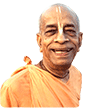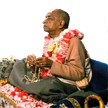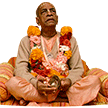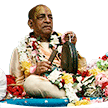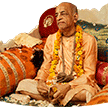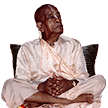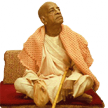Mayavadi Sannyasis - an essential subject: Difference between revisions
(Created page with "Category:Essential Subjects <!----------------------- edit below this line -----------------------> <!------------------------ begin introduction text below --------------...") |
(Vanibot #0041: Moves Choose Another box to the end) |
||
| Line 2: | Line 2: | ||
<!----------------------- edit below this line -----------------------> | <!----------------------- edit below this line -----------------------> | ||
<!------------------------ begin introduction text below ------------------------> | <!------------------------ begin introduction text below ------------------------> | ||
Generally, sex life is the cause of all miseries in the material world. In the Vedic civilization sex life is restricted in various ways. Out of the whole population of the social structure, only the gṛhasthas are allowed restricted sex life. All others refrain from sex. The people of this age especially do not know the value of not discharging semen. As such, they are variously entangled with material qualities and suffer an existence of struggle only. The word ūrdhva-retasaḥ especially indicates the Māyāvādī sannyāsīs, who undergo strict principles of austerity. But in the Bhagavad-gītā (8.16) the Lord says that even if one goes up to Brahmaloka, he again comes back (ābrahma-bhuvanāl lokāḥ punar āvartino 'rjuna). Therefore, actual mukti, or liberation, can be attained only by devotional service, because by devotional service one can go above Brahmaloka, or to the spiritual world, wherefrom he never comes back. Māyāvādī sannyāsīs are very proud of becoming liberated, but actual liberation is not possible unless one is in touch with the Supreme Lord in devotional service. It is said, hariṁ vinā na mṛtim taranti: without Kṛṣṇa's mercy, no one can have liberation. | |||
Srila Prabhupada's books, lectures, conversations and letters offer a comprehensive presentation of this essential subject as seen in the Vaniquotes '''[[Vaniquotes:Category: | Srila Prabhupada's books, lectures, conversations and letters offer a comprehensive presentation of this essential subject as seen in the Vaniquotes '''[[Vaniquotes:Category:Mayavadi Sannyasis|Mayavadi Sannyasis]]''' category. An introduction from his books is given below in the following 8 quotes. | ||
<!-------- end introduction text and don't touch next three lines ---------> | <!-------- end introduction text and don't touch next three lines ---------> | ||
---- | ---- | ||
== Quotes from Srila Prabhupada's books == | == Quotes from Srila Prabhupada's books == | ||
<!----------------- edit quote boxes below this line -----------------> | <!----------------- edit quote boxes below this line -----------------> | ||
{{VaniQuotebox| | {{VaniQuotebox|A preacher of the Krsna consciousness movement generally should not waste his time talking with Mayavadi sannyasis, but when there are arguments on the basis of sastra, a Vaisnava must come forward to talk and defeat them in philosophy|Lord Caitanya Mahāprabhu Himself exemplified such behavior, and this is why Prakāśānanda Sarasvatī inquired why He did not associate or even talk with them. Caitanya Mahāprabhu confirmed by example that a preacher of the Kṛṣṇa consciousness movement generally should not waste his time talking with Māyāvādī sannyāsīs, but when there are arguments on the basis of śāstra, a Vaiṣṇava must come forward to talk and defeat them in philosophy. '''(Caitanya-caritāmṛta, Ādi-līlā 7.67)'''}} | ||
{{VaniQuotebox| | {{VaniQuotebox|According to the customary etiquette of Mayavadi sannyasis, they address one another as Narayana|The Māyāvādī sannyāsīs are missing the real presence of Nārāyaṇa. This is because they falsely claim to be Nārāyaṇa Himself. According to the customary etiquette of Māyāvādī sannyāsīs, they address one another as Nārāyaṇa. To say that everyone is a temple of Nārāyaṇa is correct, but to accept another human being as Nārāyaṇa is a great offense. '''(Śrīmad-Bhāgavatam 4.30.36)'''}} | ||
{{VaniQuotebox| | {{VaniQuotebox|After the Lord accepted the sannyasa order of life, He delivered not only Mayavadi sannyasis but speculative students, atheists and those who were attached to fruitive activities and unnecessary criticism|When He had been spreading the saṅkīrtana movement as a family man, many Māyāvādī sannyāsīs did not take His movement very seriously, but after the Lord accepted the sannyāsa order of life, He delivered not only Māyāvādī sannyāsīs but speculative students, atheists and those who were attached to fruitive activities and unnecessary criticism. The Lord was so kind that He accepted all these people and delivered to them the most important factor in life: love of God. '''(Teachings of Lord Caitanya, Chapter 17)'''}} | ||
{{VaniQuotebox| | {{VaniQuotebox|All the inhabitants of Benares were struck with wonder upon seeing the ecstatic dancing of Lord Caitanya. But Lord Caitanya checked His continuous ecstasy and stopped dancing when He saw the Mayavadi sannyasis|As soon as he saw the beautiful body of Lord Caitanya and saw how He was dancing with His associates, Prakāśānanda Sarasvatī joined and began to sing: "Hari! Hari!" All the inhabitants of Benares were struck with wonder upon seeing the ecstatic dancing of Lord Caitanya. But Lord Caitanya checked His continuous ecstasy and stopped dancing when He saw the Māyāvādī sannyāsīs. As soon as the Lord stopped chanting and dancing, Prakāśānanda Sarasvatī fell at His feet. '''(Teachings of Lord Caitanya, Chapter 22)'''}} | ||
{{VaniQuotebox| | {{VaniQuotebox|All the Mayavadi sannyasis were very humble and submissive after hearing Lord Caitanya Mahaprabhu's explanation of the Vedanta-sutra, and they begged to be pardoned for the offenses they had committed by criticizing the Lord|The complete path of bhakti-yoga is based upon the process of becoming humble and submissive. By the grace of Lord Caitanya Mahāprabhu, all the Māyāvādī sannyāsīs were very humble and submissive after hearing His explanation of the Vedānta-sūtra, and they begged to be pardoned for the offenses they had committed by criticizing the Lord for simply chanting and dancing and not taking part in the study of the Vedānta-sūtra. '''(Caitanya-caritāmṛta, Ādi-līlā 7.148)'''}} | ||
{{VaniQuotebox| | {{VaniQuotebox|At that time Varanasi was headed by a great sannyasi of the Mayavada school named Sripada Prakasananda Sarasvati|At that time Vārāṇasī was headed by a great sannyāsī of the Māyāvāda school named Śrīpāda Prakāśānanda Sarasvatī. When the Lord was at Vārāṇasī, the people in general became more attracted to Lord Caitanya Mahāprabhu on account of His mass saṅkīrtana movement. Wherever He visited, especially the Viśvanātha temple, thousands of pilgrims would follow Him. Some were attracted by His bodily features, and others were attracted by His melodious songs glorifying the Lord. '''(Śrīmad-Bhāgavatam, Introduction)'''}} | ||
{{VaniQuotebox| | {{VaniQuotebox|Because a sannyasi in the Sankara-sampradaya thinks that he has become the Supreme, Lord Caitanya, wanting to avoid such a misconception, kept the name Sri Krsna Caitanya, placing Himself as an eternal servitor|The great authorities in the disciplic succession had not offered to explain why Lord Caitanya refused to take the name Bhāratī after He took sannyāsa from a Bhāratī, until Śrīla Bhaktisiddhānta Sarasvatī Gosvāmī Mahārāja volunteered the explanation that because a sannyāsī in the Śaṅkara-sampradāya thinks that he has become the Supreme, Lord Caitanya, wanting to avoid such a misconception, kept the name Śrī Kṛṣṇa Caitanya, placing Himself as an eternal servitor. '''(Caitanya-caritāmṛta, Ādi-līlā 3.34)'''}} | ||
{{VaniQuotebox| | {{VaniQuotebox|By His extraordinarily beautiful bodily features, the Mayavadi sannyasis recognized Sri Caitanya Mahaprabhu as Narayana Himself|One of these opulences is His beauty. By His extraordinarily beautiful bodily features, the Māyāvādī sannyāsīs recognized Śrī Caitanya Mahāprabhu as Nārāyaṇa Himself. He was not a farcical Nārāyaṇa like the daridra-nārāyaṇas invented by so-called sannyāsīs. '''(Caitanya-caritāmṛta, Ādi-līlā 7.104)'''}} | ||
<!----------------- edit quote boxes above this line -----------------> | <!----------------- edit quote boxes above this line -----------------> | ||
''' | '''Mayavadi Sannyasis - [[Vaniquotes:Category:Mayavadi Sannyasis|explore more within this category]]'''. | ||
{{EsentialSubjectTotal}} | {{EsentialSubjectTotal}} | ||
<div style="float:left;"> | |||
{{EssentialSubjectnav}} | |||
</div> | |||
__NOTOC__ | __NOTOC__ | ||
__NOEDITSECTION__ | __NOEDITSECTION__ | ||
Latest revision as of 16:54, 22 November 2020
Generally, sex life is the cause of all miseries in the material world. In the Vedic civilization sex life is restricted in various ways. Out of the whole population of the social structure, only the gṛhasthas are allowed restricted sex life. All others refrain from sex. The people of this age especially do not know the value of not discharging semen. As such, they are variously entangled with material qualities and suffer an existence of struggle only. The word ūrdhva-retasaḥ especially indicates the Māyāvādī sannyāsīs, who undergo strict principles of austerity. But in the Bhagavad-gītā (8.16) the Lord says that even if one goes up to Brahmaloka, he again comes back (ābrahma-bhuvanāl lokāḥ punar āvartino 'rjuna). Therefore, actual mukti, or liberation, can be attained only by devotional service, because by devotional service one can go above Brahmaloka, or to the spiritual world, wherefrom he never comes back. Māyāvādī sannyāsīs are very proud of becoming liberated, but actual liberation is not possible unless one is in touch with the Supreme Lord in devotional service. It is said, hariṁ vinā na mṛtim taranti: without Kṛṣṇa's mercy, no one can have liberation.
Srila Prabhupada's books, lectures, conversations and letters offer a comprehensive presentation of this essential subject as seen in the Vaniquotes Mayavadi Sannyasis category. An introduction from his books is given below in the following 8 quotes.
Quotes from Srila Prabhupada's books
Mayavadi Sannyasis - explore more within this category.
Vanipedia has now over 903 introductory articles compiled from Srila Prabhupada's books under the series titled Essential Subjects. All these articles can be seen in the Table of Content on the right side of this article and also here in this Umbrella Category. Browse through them to relish the breadth and depth of Srila Prabhupada's teachings - There is a subject for everyone.
